
GENEVA - A group of United Nations human rights experts, including Maina Kiai, today urged the Security Council to take immediate action to prevent Burundi from sliding back into violent conflict ahead of presidential elections, a crisis which will not leave the other countries in the region, including Rwanda and the Democratic Republic of the Congo, unaffected. Thus far, 145,000 persons have fled to neighbouring countries in fear for their lives. “The world is witnessing an escalating pattern of politically motivated violence in Burundi, enabled by the country’s decades-long tradition of impunity,” the experts warned. “The international community must not simply stand by and wait for mass atrocities to unfold, thereby risking a major conflict of regional proportions before it finally decides to act,” the Special Rapporteurs added, pointing to repeated cycles of mass violations that Burundi and the Great Lakes region have witnessed in recent history. The situation in Burundi has already involved serious human rights violations. “It is accumulating the well-known and visible marks of a society which previously suffered divisions leading to grave violence. This can escalate into major conflict through the use of outright repression against, and intimidation of, the population at large, the instrumentalization of... Continue reading →
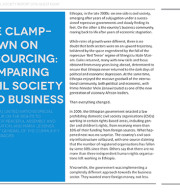
UN Special Rapporteur Maina Kiai has co-authored an essay with Community of Democracies Secretary General Maria Leissner comparing the ability of business and civil society to access resources worldwide. The piece appears in CIVICUS's 2015 "State of Civil Society Report," and previews one of the issues that the Special Rapporteur will explore in his upcoming report to the UN General Assembly in October 2015. "At first glance, the business and civil society sectors may seem strange bedfellows for comparison. Conventional wisdom tells us that these two entities are distinct, warranting separate rules and treatment," Kiai and Leissner write. "But beyond their dissimilar profit motives, just how different are businesses and civil society? And how differently should governments treat them?" The essay cites a number of examples where several governments go to much greater lengths to create a conducive environment for business investment, while virtually shutting off similar funding for civil society. Ethiopia, for example, has actively encouraged foreign investment in its business sector over the past seven years, leading to an economic boom. The country is now creating millionaires faster than any country on earth, while gross domestic product growth has averaged 39% a year, according to one source. At the same time, it... Continue reading →
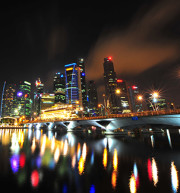
At first glance, the business and civil society sectors may seem strange bedfellows for a comparative study. In the mind of the public and policymakers, these two entities appear distinct, warranting separate rules and treatment. The basis for this treatment seems to boil down to one dividing point: One exists to make a profit; the other is non-profit. But beyond their dissimilar profit motives, are businesses and associations really that different? Both are non-state actors, potential employers, providers of goods and services, magnets for investment, and possible platforms for mobilizing people and influencing policy. Both are crucial to economic and political development, both domestically and internationally. And both have potential to enhance the protection and promotion of human rights. Despite these sweeping similarities, the UN Special Rapporteur on the rights of freedom of assembly and association Maina Kiai has observed over the past four years that many governments do, in fact, single out CSOs for special treatment – not all of it good. The reasons for this difference in treatment are not always clear, and are often suspicious on their face. In some countries, for example, a business can be registered in a matter of hours, while NGO registration can take months. In others, it is forbidden to start a new... Continue reading →
Worldwide, space is shrinking for civic organizations and actions, while the threats to the rights to freedom of peaceful assembly and of association are growing. In an effort to help reverse these trends, the Special Rapporteur on the rights to freedom of peaceful assembly and of association began a new project in 2014 that aims to protect these rights via litigation in national and regional courts. The project, which is supported by the government of Norway, focuses on providing technical assistance and advisory services for public interest litigation on assembly and association issues, with a view to increasing such litigation and encouraging the application of international law norms at the domestic level. The Special Rapporteur also plans to submit amicus briefs in relevant cases, where he can highlight international norms and principles. The Special Rapporteur recognizes the importance of involving all arms of government, and in particular, the judiciary in order to provide recourse for rights violations. Additionally, engagement with the judiciary through litigation provides an avenue for international human rights law to filter into domestic jurisprudence, informing the creation and implementation of laws at the national level. This page hosts information, news and documents related to the litigation... Continue reading →
GENEVA – A group of United Nations independent human rights experts, including Maina Kiai, has urged the government of Bahrain to drop charges against three women human rights activists exercising their rights to free expression and free association. “Deprivation of liberty on the sole ground of having exercised the right to free expression may be considered arbitrary,” the experts warned. Ms. Maryam Al-Khawaja, the co-director of the Gulf Centre for Human Rights, was sentenced on 1 December, in absentia, for allegedly assaulting airport security officers. Her sister, Ms. Zainab Al-Khawaja, a women’s rights and social media activist in Bahrain, was sentenced on 4 December to three years in prison and fined 3,000 BHD (7,900 USD) for tearing a picture of Bahrain’s King during a court hearing in October. Several days later, she was sentenced to an additional year for “insulting a public servant” and is facing further charges for insulting a police officer and trespassing. The two women activists are daughters of Mr. Abdulhadi al-Khawaja, the former president of the Bahrain Centre for Human Rights, who has been in detention since 2011 and was the subject of numerous calls by UN experts for his release. Ms. Ghada Jamsheer, head of the Women’s Petition Committee, a network of Bahraini women human rights... Continue reading →
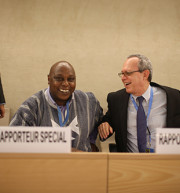
GENEVA – Special Rapporteur Maina Kiai today urged UN member states to protect the assembly and association rights of all people within their borders – including those who are “seen as being different” and may be marginalized as a result. Kiai’s remarks were delivered to the Human Rights Council on June 10-11 in Geneva, where he presented three reports – a thematic report on the assembly and association rights of groups “most at risk,” a country report on his official mission to Rwanda, and third on communications transmitted to UN Member States. The Special Rapporteur’s most recent thematic report documents the challenges faced by marginalized groups in exercising – or seeking to exercise – their rights to freedoms of peaceful assembly and of association. These groups, deemed “most at risk,” include persons with disabilities; youth; women; lesbian, gay, bisexual, transgender and intersex (LGBTI) people; members of minority groups; indigenous peoples; internally displaced persons; and non-nationals, including refugees, asylum seekers and migrant workers. “It matters not whether we approve or support the activities of these marginalized groups at risk,” Kiai told the Council. “The test of international law is that as long as their activities are non-violent, non-discriminatory,... Continue reading →
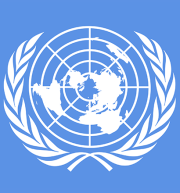
GENEVA – United Nations Special Rapporteur Maina Kiai will appear before the 26th Session of the UN Human Rights Council on June 10 to present his latest reports – one on his official mission to Rwanda and another focusing on the assembly and association rights of marginalized groups. He will also present a third report on observations on communications transmitted to Governments and replies received between March 1, 2013, and February 28, 2014. Kiai, who is the UN Special Rapporteur on the rights to freedom of peaceful assembly and of association, is scheduled to present at the Council’s afternoon session on June 10, which begins at 12:30 p.m. local time; his presentation may run into June 11, depending on the length of other agenda items. The session will be broadcast live on http://webtv.un.org/. Thematic Report: Groups Most At Risk Kiai’s thematic report documents the challenges faced by marginalized groups in exercising – or seeking to exercise – their rights to freedoms of peaceful assembly and of association. These groups, deemed “most at risk,” include persons with disabilities; youth; women; lesbian, gay, bisexual, transgender and intersex (LGBTI) people; members of minority groups; indigenous peoples; internally displaced persons; and non-nationals, including refugees, asylum seekers and... Continue reading →
• A day later, Nigeria flip-flops and says no protest ban for #BringBackOurGirls group (Al Jazeera). Earlier: Bring Back Our Girls demonstrations banned for “security reasons” in Abuja, Nigeria. Ban is “insane,” says protest group’s lawyer. (The Telegraph) • Using the ‘Hunger Games’ salute has taken hold as a form of protest in Thailand, after peaceful assemblies were banned. One anti-coup activists calls on people to raise “3 fingers, 3 times a day” to call for political rights (Washington Post). A military spokesman expressed concern: “If it is an obvious form of resistance, then we have to control it so it doesn’t cause any disorder in the country.” (News.com.au) • Amnesty International has released a new report on Russia “onslaught on protest.” Earlier: Human Rights Watch on the effect of Russia’s “foreign agents” law on NGOs. • Also on Russia: Manifesta – the “roving European biennial of contemporary art” – will be held in St. Petersburg this year. Its curator, Kasper König, reflects on the situation in the country: “The ink on my contract was still wet when that appalling anti-gay law was passed. It became clear to me that I was working in a country where there is no civil society.” (DW.de) • Activists launch giant balloons to protest the ballooning cost... Continue reading →
• Indian police use water cannon to end gang-rape protest in Lucknow. (The Guardian) • As King Juan Carlos abdicates, anti-monarchy demonstrators take to the streets in Spain to demand a referendum on abolishing the monarchy. (RT.com) • Bring Back Our Girls demonstrations banned for “security reasons” in Abuja, Nigeria. Ban is “insane,” says protest group’s lawyer. (The Telegraph) • 13 demonstrators arrested in protest against Albuquerque, New Mexico, USA, police (four days autopsy report revealed police had shot a homeless man in the back in March). “All we asked is to talk to the mayor,” said one protester, just before being handcuffed. (Albuquerque Journal) • British Colombia (Canada) students plan walkout to protests labor dispute between teachers and government. “We’re not taking sides,” says Grade 12 student leader. (Globe and Mail) • EU Neighborhood survey finds most of Europe’s neighbors don’t know what the term “civil society” means – but still think it can make a difference. (EU Neighborhood Info Centre) • Hungarian government raids three NGOs with ties to Norway. (Reuters) • And over the weekend, big clashes in Turkey over the one-year anniversary of the Gezi Park protests (Haaretz). Even a CNN reporter got roughed up a bit: “we're being detained... Continue reading →
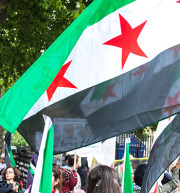
GENEVA – A group of United Nations independent human rights experts* today emphasized that the UN Security Council’s decision not to refer the situation in Syria to the International Criminal Court (ICC) leaves the door wide open for new atrocities in the ongoing conflict. “The double veto last week to a resolution referring the situation in Syria to the ICC is likely to expose the Syrian population to further gross human rights and humanitarian law violations,” they said. “The failure to hold those responsible for the violations to account may fuel further atrocities.” The human rights experts stressed that “given the absence of prosecution at the domestic level it was the UN Security Council’s responsibility to refer the situation to the International Criminal Court.” “Referring the situation in Syria to the ICC would have been an important and most necessary step both to protect civilians against continued and future violations by all sides to the conflict, and to curb impunity for the grave violations of human rights and humanitarian law, some amounting to crimes against humanity,” they noted. In March, in light of its serious concern and the gravity of the situation in relation to enforced disappearance in the country, the UN Working Group on enforced or involuntary disappearances... Continue reading →